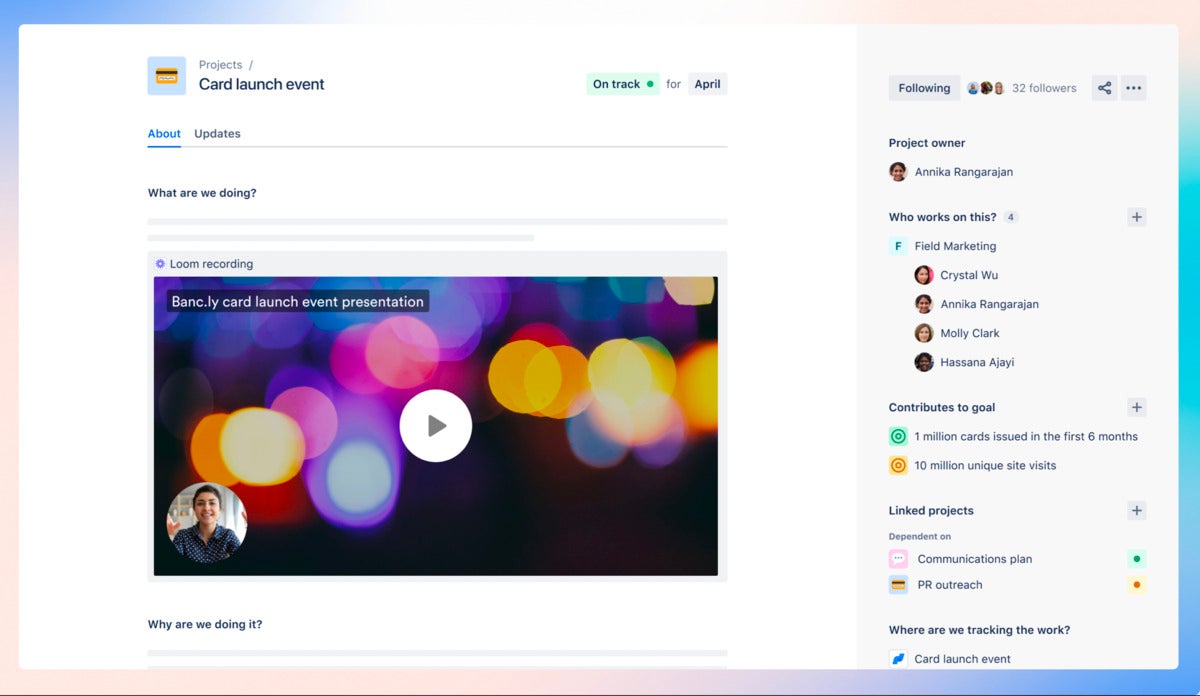Atlassian today rolled out two new software additions to its platform, one aimed at software developers, the other designed for team collaboration — and added new data-driven capabilities.
Compass and Atlas evolved out of Atlassian’s Point A accelerator, a program that creates new products to address customers' pain points. (Jira Work Management, which Atlassian launched in April 2021, was also born out of the Point A accelerator.)
The latest announcements came during Atlassian ’22 in Las Vegas, the company’s annual event.
Compass for software development
Atlassian's new is designed to help software development teams overcome the complexities of distributed software architecture, including the need for multiple tools
“They spend a lot of their time managing these multiple tools and products, just to see what's going on across the technical landscape they're working on,” said Atlassian COO Anu Bharadwaj
Compass comprises three parts: Components, Scorecards, and Apps, and offers a holistic view of software development components as they evolve.
- Components give developers a unified interface to track both the technical architecture and related teams over time. Developers can access shared components, documentation, and other important information to build software in one place.
- Scorecards is a DevOps health tool that allows developers to measure their architecture against baselines, security, or compliance requirements they need to meet. With Compass, Atlassian said, the auditing process can go from once or twice a year to nearly real-time, with health scorecards displayed on components.
- Apps can bring in information across a variety of developer SaaS tools to help teams better align their work, and give them the flexibility to choose the best tool for the job.
Compass is fully compatible with Forge, Atlassian’s cloud app development platform; Forge’s integrated Functions-as-a-Service platform allows teams to extend Compass with minimal setup.
 Atlassian
Atlassian
Compass Components is one of the new features rolled out by Atlassian.
Atlas, a teamwork directory
Atlas is a teamwork directory used to connect the dots across teams, their apps, and work. Atlassian says it helps drive alignment by clarifying what a company is doing, how it's going and who’s working on what.
“As you go from, like, 10 people to 100 people or 1,000 people, those communication loops get weakened,” Bharadwaj said. “Typically, we hear from growing companies that it's harder to connect with the newest person on the team, to explain the company's mission or purpose and let them know how the work they’re doing is actually helping to take that forward.”
Atlas gives every project a homepage, where anyone can see what the project entails and how success will be measured. Users can also link Jira tickets, Confluence pages, and Trello boards connected to each project, while team members can “follow” the project for weekly updates and discover related projects from the same page.
 Atlassian
Atlassian
Atlas personalized screen view.
Every Project in Atlas can also be connected to a Goal, connecting work to company outcomes. Atlas reminds teams to post updates on their work every week for Projects, and every month for Goals.
These weekly updates are limited to 280-characters and users can embed videos, images, gifs to create a useful, engaging update. Each Monday, users receive a personalized digest of the projects they follow by email, in a Slack channel, or via Microsoft Teams.
Atlassian is also bringing smart links, first introduced in updates to Confluence and Trello in 2020, to Atlas. When pasting a URL into Atlas, the link can be displayed as just the title of the linked item, a full preview of the link or a thumbnail preview of the link’s contents.
Smart Links also work in the reverse direction, making it possible to add live previews of Atlas’ Project and Goals updates to any Confluence page, Jira issue, or Trello board.
Every Atlas user has an individual profile, detailing what they are working on and what has been completed; their direct reporting lines; and the cross-organizational teams a specific employee has worked with on other projects. Atlassian plans to add a “skills and interests” section for each team’s profile in the coming months.
Wayne Kurtzman, IDC research director for social and collaboration, said Atlas enables Atlassian to create a better-connected fabric at the person level and stretch across their products. “Instead of relying on features from other vendors, Atlas brings Atlassian closer to becoming the platform it envisioned,” he said.
Atlassian Analytics and Data Lake
Atlassian will also offer two new capabilities to give users flexible access to all their data.
The Atlassian Data Lake contains cross-product and cross-instance data for easy analysis with pre-modelled and enriched fields to speed up insight generation. At launch, Atlassian Data Lake will include data from Jira Software and Jira Service Management, access to data across other Atlassian products expected later.
Atlassian Analytics uses technology from Chartio, a cloud-based visualization and analytics firm Atlassian acquired last year. It connects to the Atlassian Data Lake and lets users access data via interactive dashboards, SQL visualizations, no-code visualizations, and information pulled from other business-critical data sources.
In a future update, Atlassian says users will be able to directly connect to external business intelligence tools.






